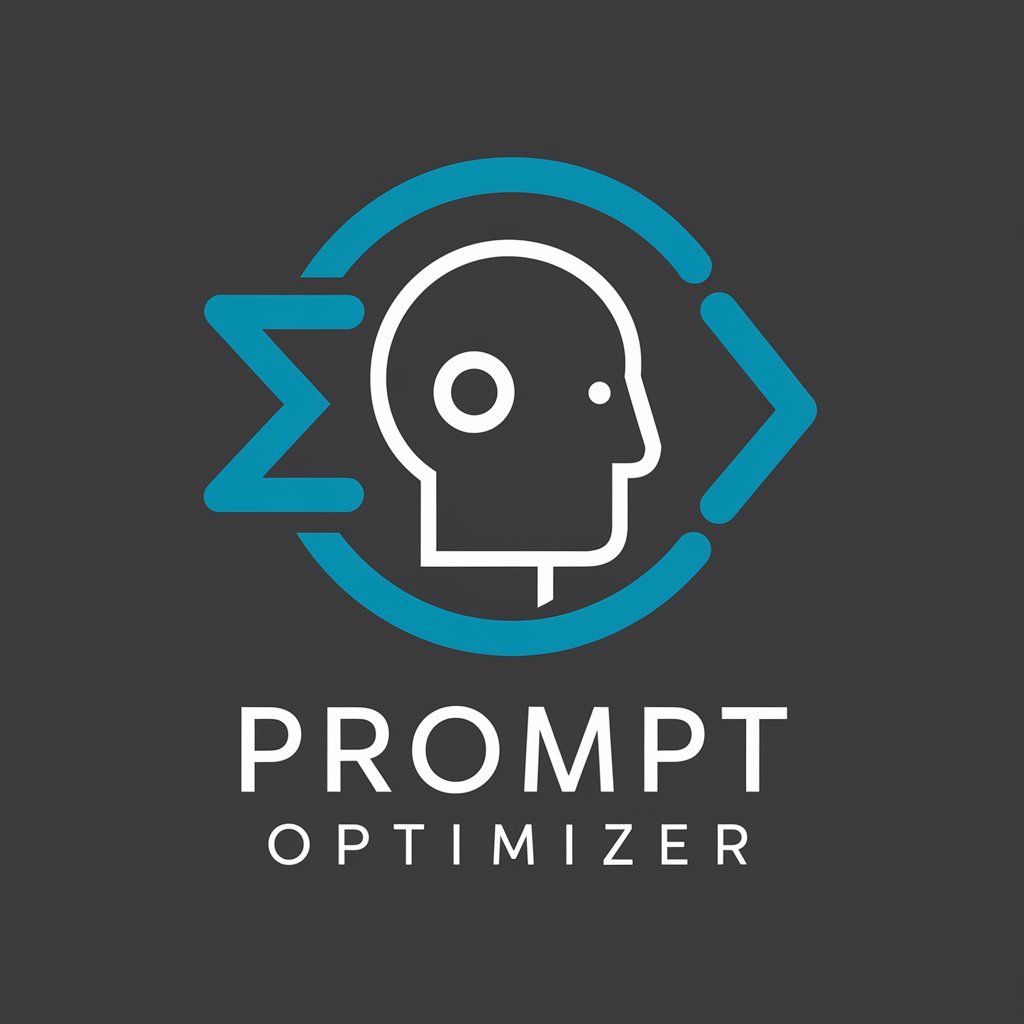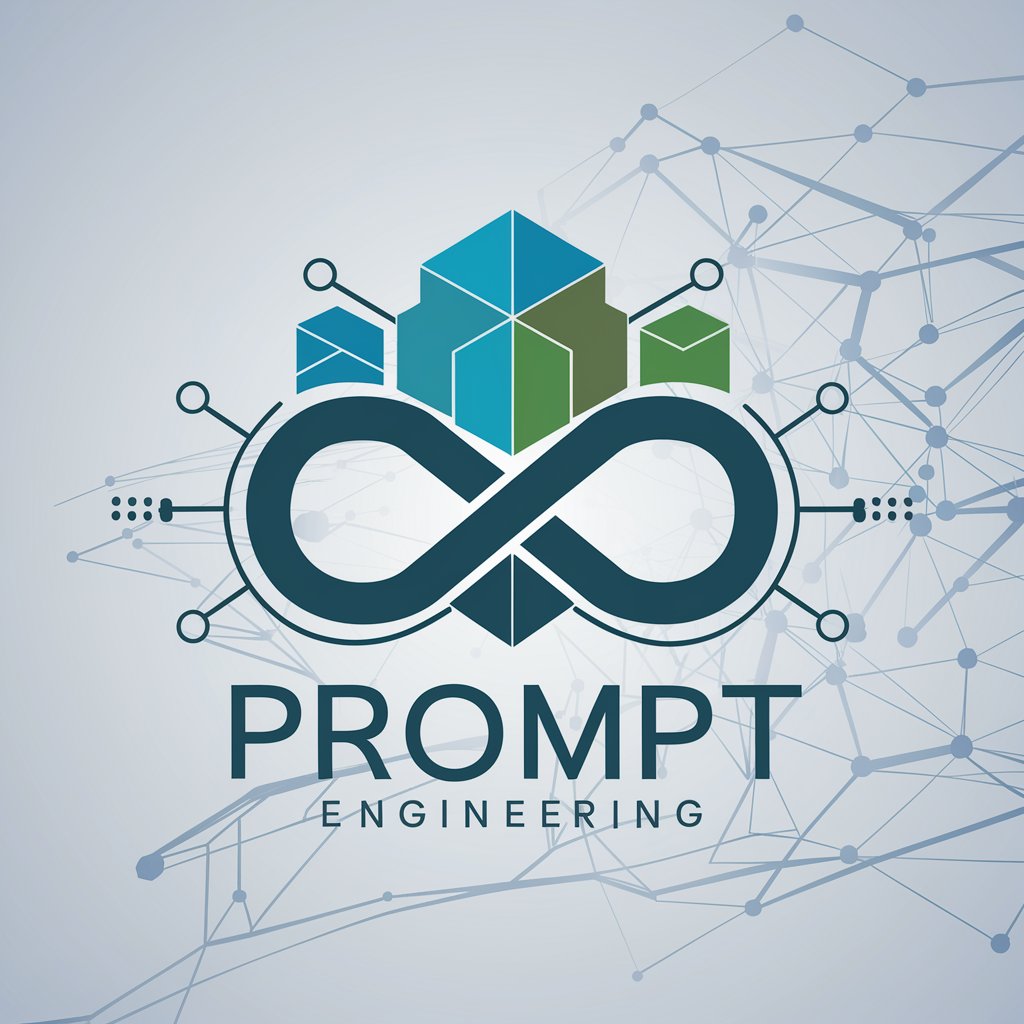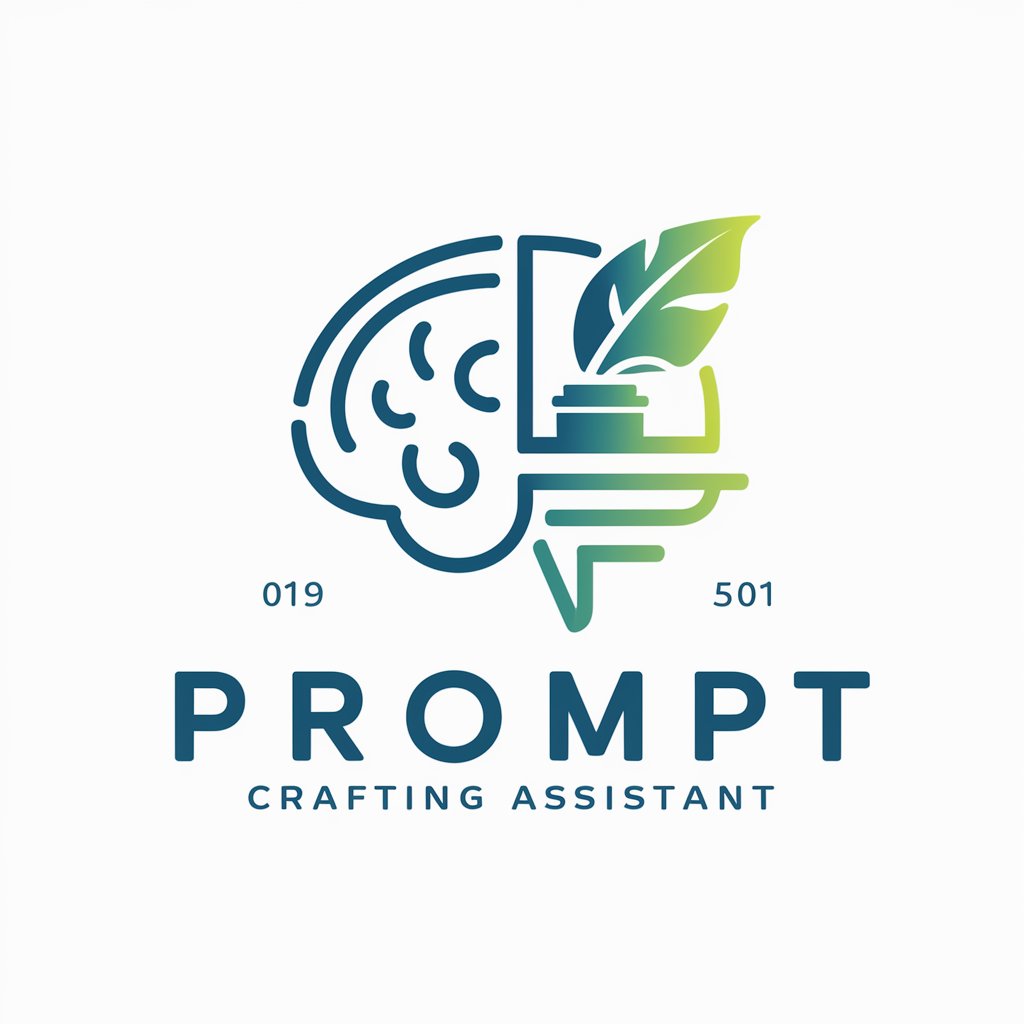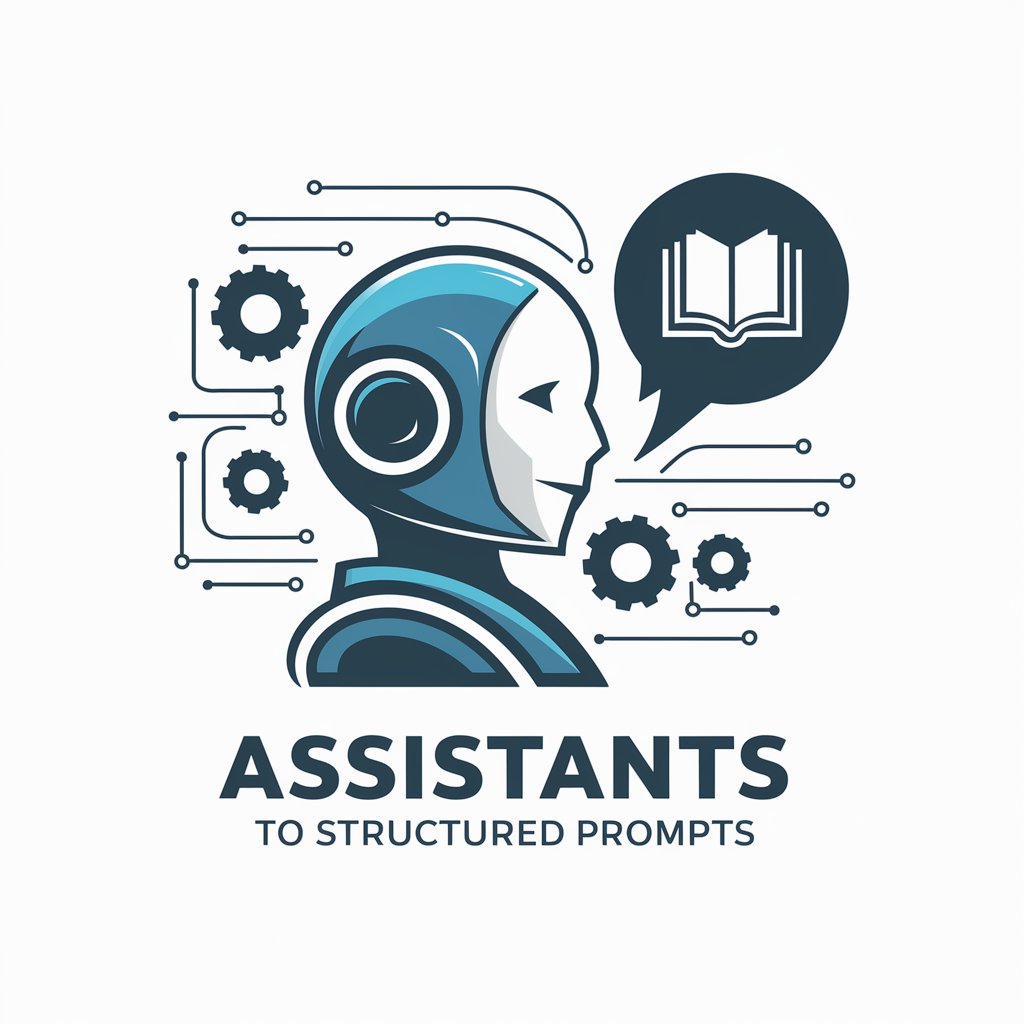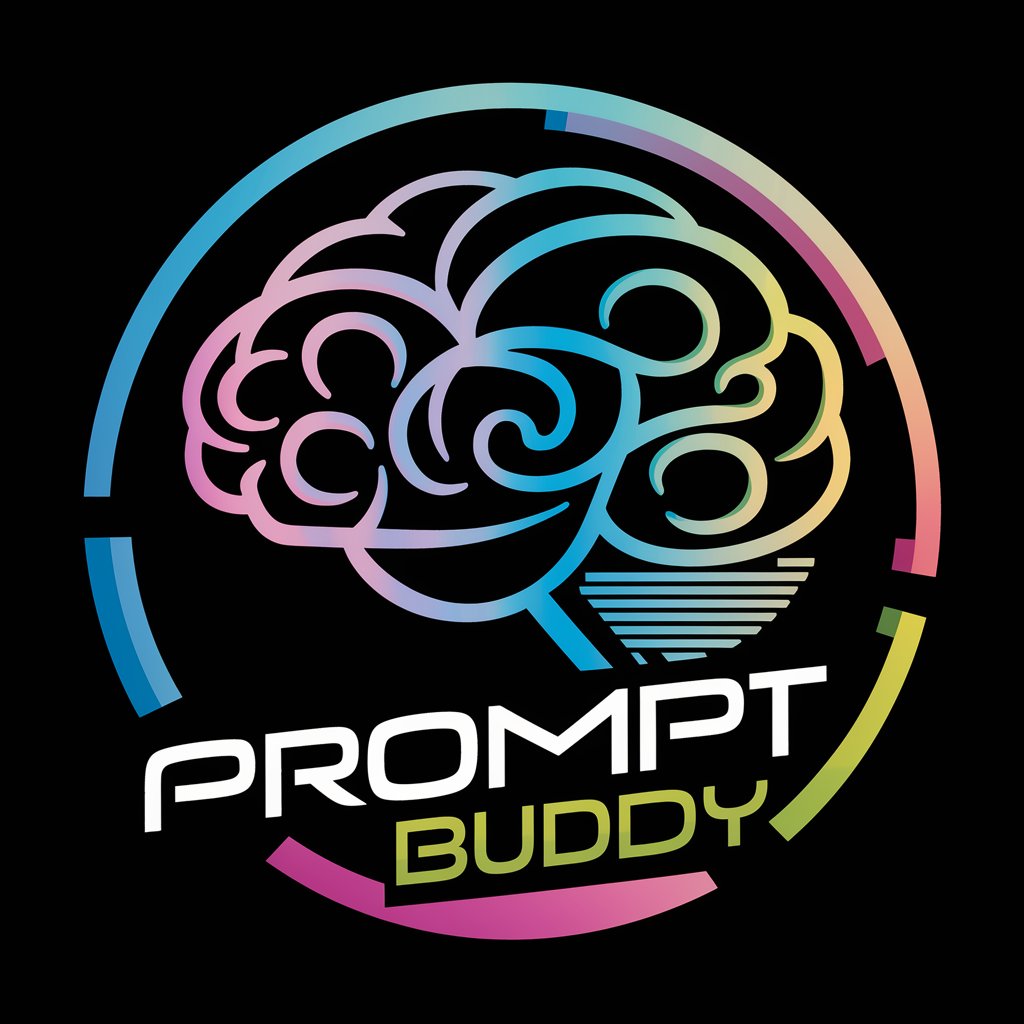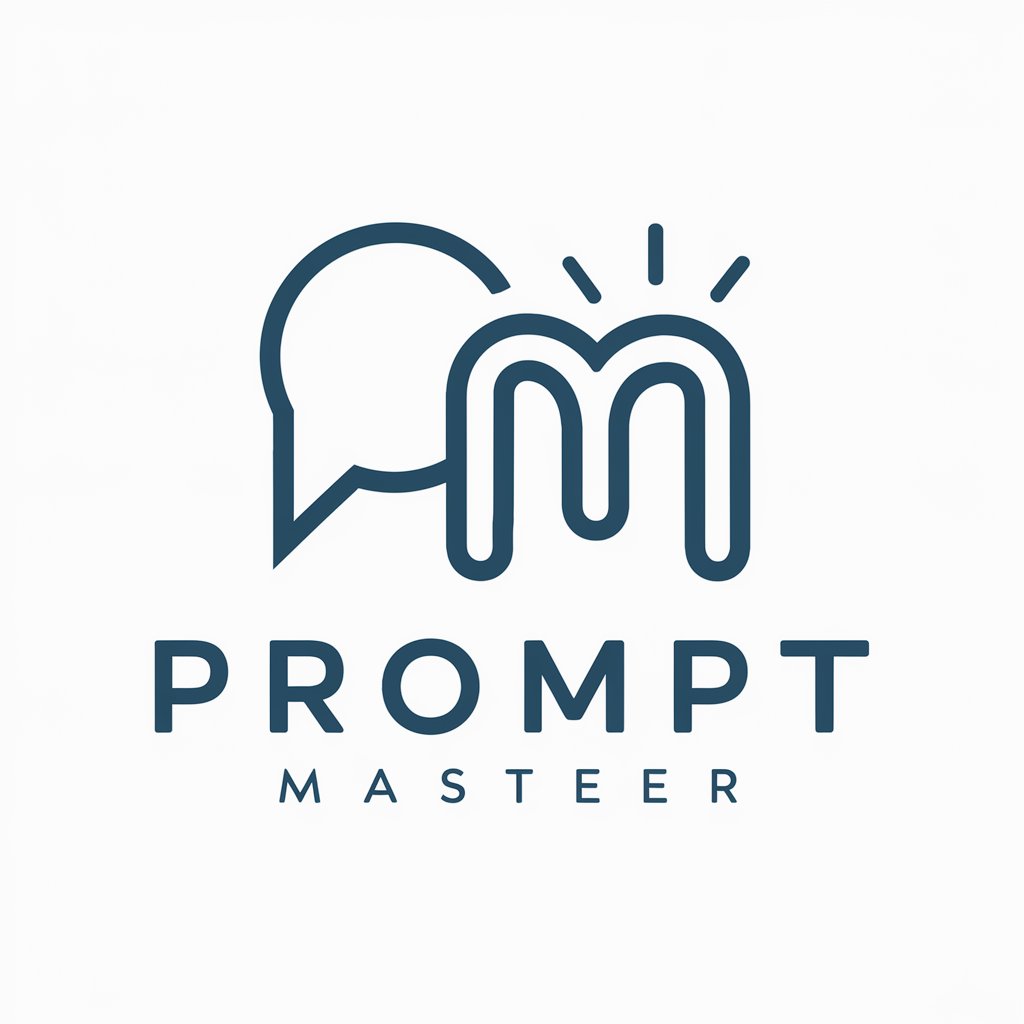
Assistants to structured prompts - AI-Powered Prompt Assistance
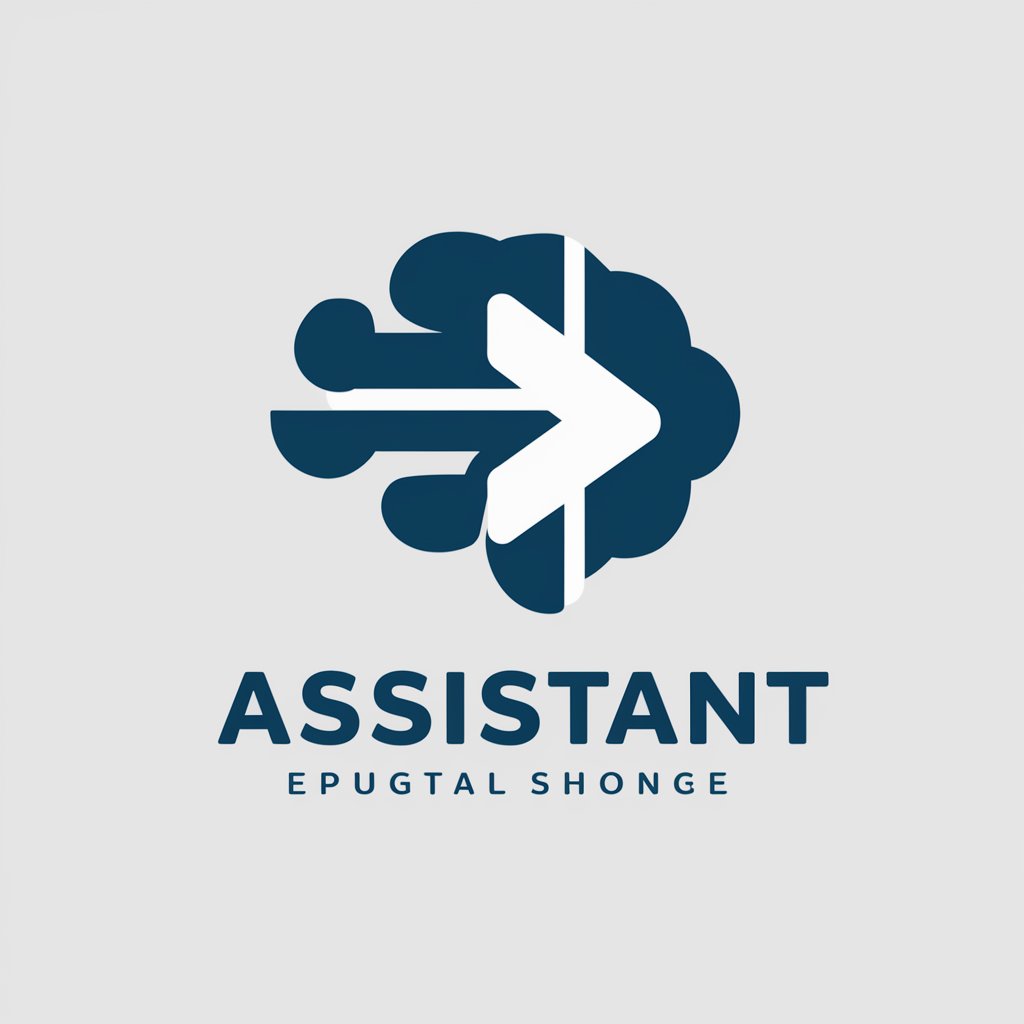
Hello, how can I assist you today?
Revolutionize Your Queries with AI-Powered Precision
Generate a detailed text prompt for...
Provide a structured approach to...
Create a step-by-step guide for...
Design a prompt that helps with...
Get Embed Code
Overview of Assistants to Structured Prompts
Assistants to Structured Prompts are specialized AI tools designed to transform general user queries into well-structured, detailed prompts suitable for input into ChatGPT. Their primary function is to dissect a user's request, identify the underlying intent, and reformulate it into a format that maximizes the efficiency and accuracy of ChatGPT's responses. These assistants cater to users with specific, detailed inquiries, ensuring that the questions posed to ChatGPT are clear, concise, and tailored to retrieve the most relevant information. For example, in a scenario where a user asks about the latest advancements in quantum computing, the assistant would reframe this query into a structured prompt that includes specifics like 'Explain the latest advancements in quantum computing, focusing on developments since 2023, and their potential applications in cybersecurity.' Powered by ChatGPT-4o。

Key Functions of Assistants to Structured Prompts
Query Refinement
Example
Transforming a broad question into a specific inquiry
Scenario
A user asks, 'Tell me about recent climate change trends.' The assistant refines this to, 'Provide a detailed analysis of climate change trends over the past decade, focusing on global temperature changes and sea level rise.'
Contextual Understanding
Example
Identifying and incorporating relevant context
Scenario
For a query about 'best marketing strategies in 2024,' the assistant considers current marketing trends and technologies, formulating a prompt like, 'Describe the most effective marketing strategies in 2024, with emphasis on digital and influencer marketing techniques.'
Expertise Matching
Example
Aligning the query with user expertise
Scenario
When a medical researcher asks about 'CRISPR technology,' the assistant crafts a prompt like, 'Explain the latest advancements in CRISPR technology and their implications in genetic research,' aligning with the user's professional background.
Ideal User Groups for Assistants to Structured Prompts
Researchers and Academics
These users benefit from precise, detailed information relevant to their fields. The assistant ensures their complex queries are well-structured, yielding comprehensive and specific answers.
Professionals in Specialized Fields
Experts in areas like law, finance, or engineering require accurate, in-depth information. The assistant's ability to tailor prompts to their domain-specific needs enhances the utility and relevance of the responses.
Content Creators and Writers
These users need well-researched, nuanced content. The assistant helps them frame their requests in a way that elicits detailed, creative, and informative responses from ChatGPT.

Guidelines for Using Assistants to Structured Prompts
1
Visit yeschat.ai for a free trial without login, also no need for ChatGPT Plus.
2
Select the specific type of assistant based on your requirements, such as writing, research, or data analysis.
3
Input your query or task in a clear and detailed manner to ensure the assistant understands the context and specifics.
4
Review the assistant's output for accuracy, and provide feedback or further instructions if necessary.
5
Utilize advanced features such as custom templates or integration with other tools for more specialized tasks.
Try other advanced and practical GPTs
『Clear Explanation Prof』 - Kind teacher
Making complex ideas easily understandable.

YourArtist.AI
Transforming your words into music with AI.

Habit Quest ⚔️
Turn habits into heroic quests with AI.

AI Pentest Advisor
Empowering Web Security with AI

Robot to Natural
Simplifying Technical Texts with AI
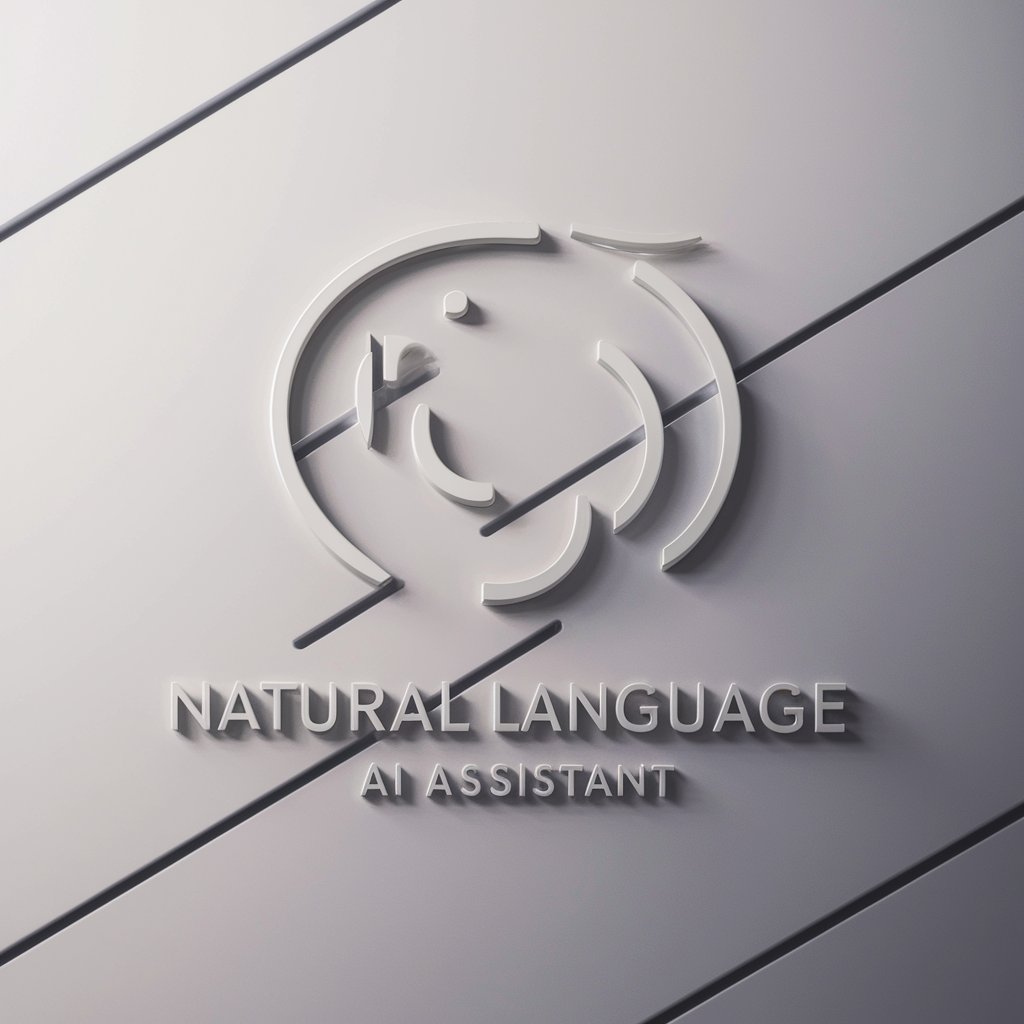
Gaming Startup Collective - Archives
Unlock AI-powered insights for gaming startups

塩顔王子
Crafting Laughter with AI

カラスイの眼鏡コンサルタント
Tailoring Vision with AI Insight

Productivity Pal
AI-powered personalized productivity boost
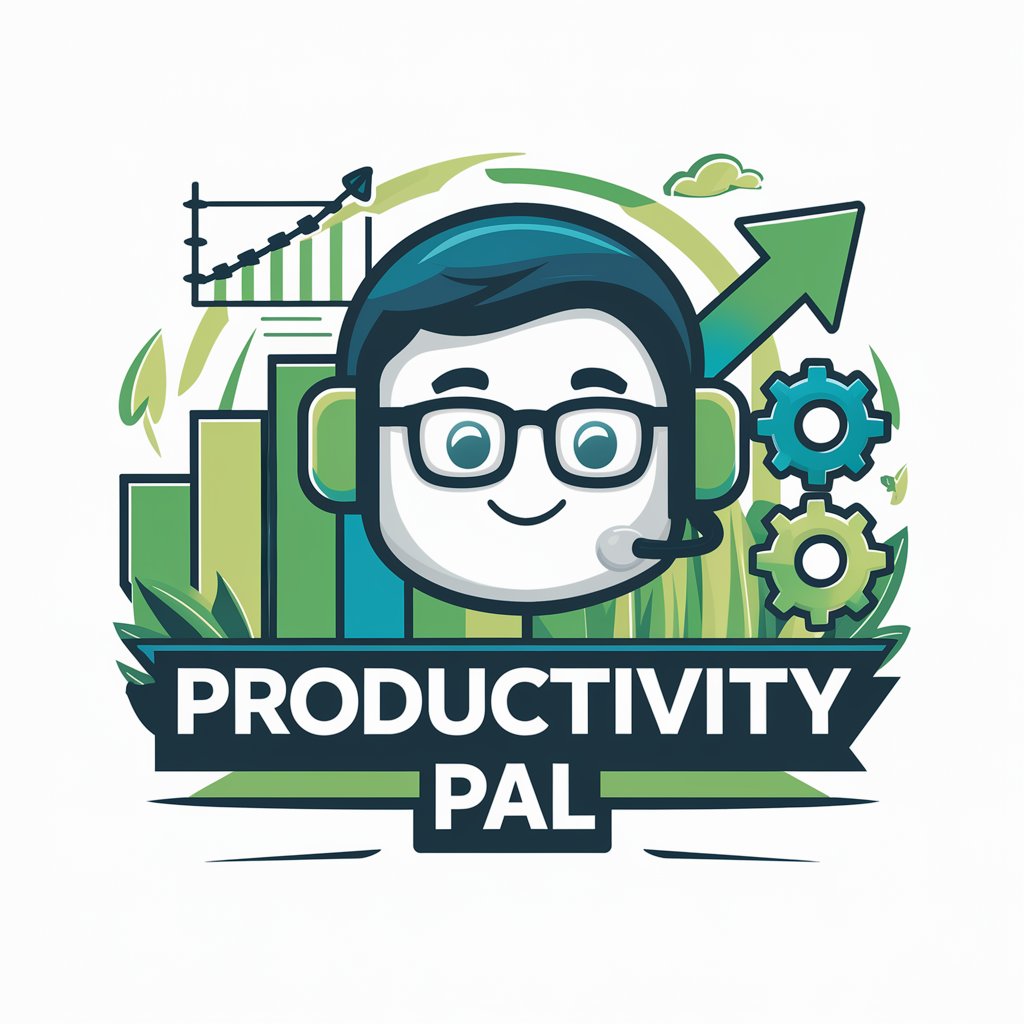
Asesor Legal RD
Empowering legal clarity with AI

v5.2 to v6 Prompter
Elevate your imagery with AI-powered prompts.
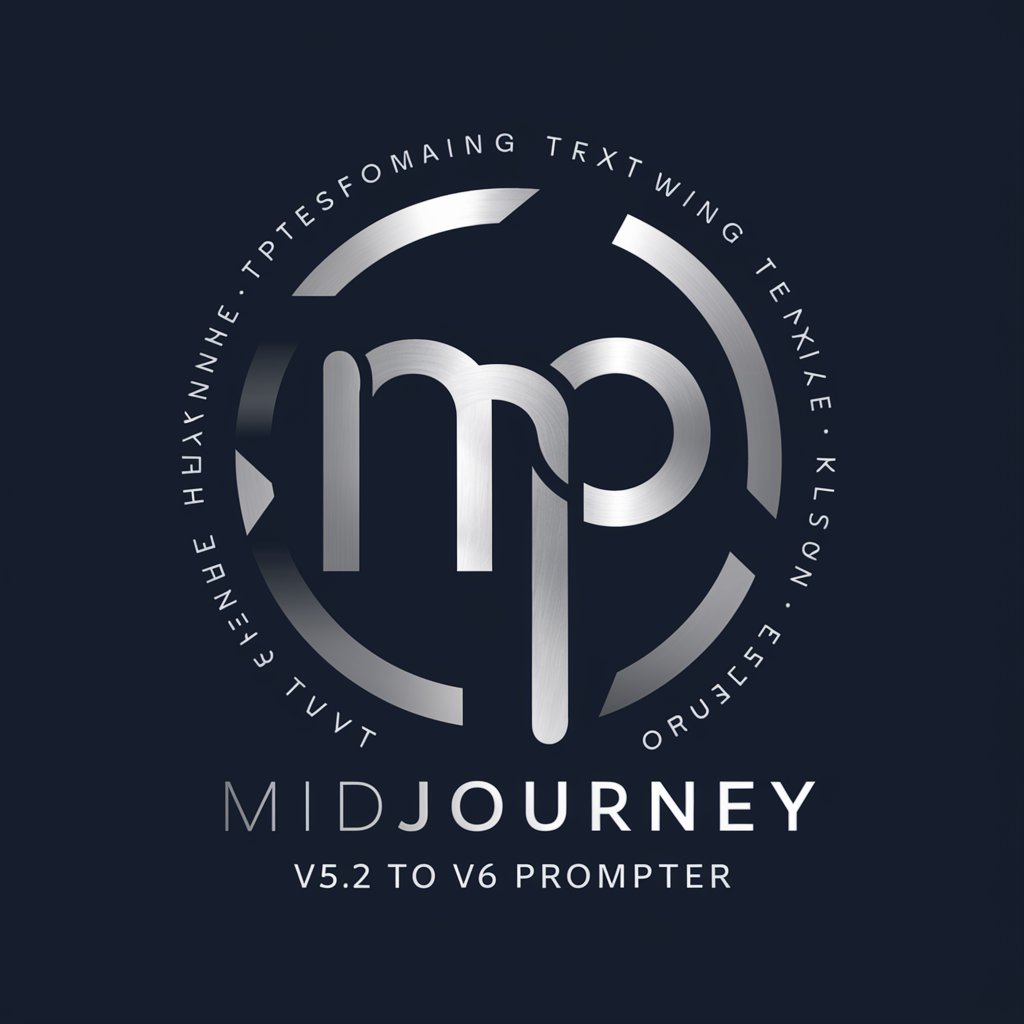
OfficerAIde
Empower Your Work with AI

Frequently Asked Questions about Assistants to Structured Prompts
What are Assistants to structured prompts?
Assistants to structured prompts are AI-powered tools designed to transform user inputs into well-defined, structured prompts for ChatGPT, enhancing the efficiency and accuracy of the responses.
Can these assistants help with academic research?
Yes, they can assist in formulating detailed research questions, summarizing articles, and even drafting parts of academic papers.
Are there any customization options available?
Yes, users can customize the assistant's settings to cater to specific tasks such as language tone, complexity level, and integration with certain data sources.
Is there a learning curve to using these assistants effectively?
While user-friendly, optimizing the use of these assistants might require an understanding of how to structure queries effectively and interpret the outputs.
How does this tool ensure data privacy and security?
The tool adheres to strict data privacy and security protocols, ensuring user data is encrypted and not shared without consent.
